“Phải” means “rowing”, “Lừa” means “raft” - “Phải Lừa” means “Raft Rowing Festival”. Coming to the festival, visitors will be immersed in folk games associated with the river area such as: Raft racing, diving to catch duck feet, swimming competitions…..; Immerse yourself in the smooth sli and gliding melodies of young men and women. In particular, you will be able to listen to a legend full of profound humanistic meaning, which is the origin of the Festival.
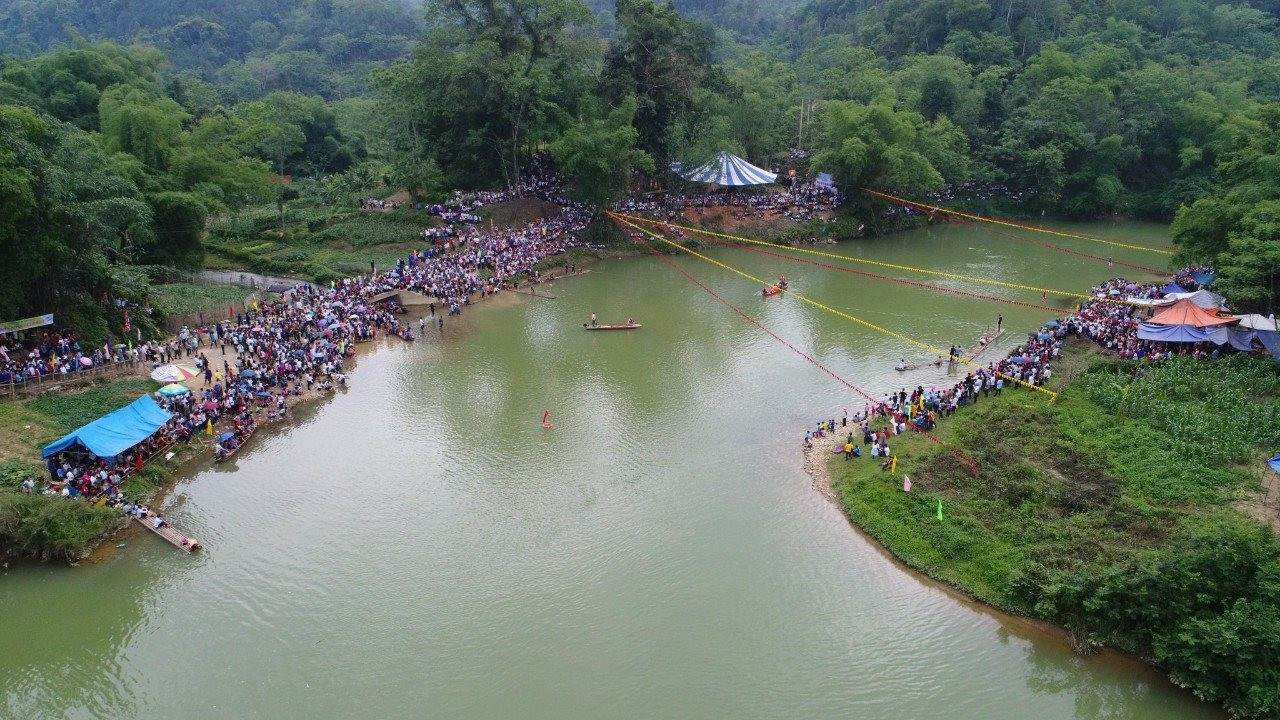
The story goes that, long ago, at the ferry on the Van Mich River, there was a poor couple who made a living by fishing, working hard but only having enough to eat. Nearly 40 years old, the couple still did not have a child, their sadness was indescribable.
One day, the wife had a dream that on the way back to her parents' house, lightning struck her ribs, and not long after, she became pregnant. While fishing, the couple accidentally caught an egg with a very red dot on its tip. Finding it strange, the couple took it home to incubate, and after a while the egg hatched into a red-crested snake. Since they had no children, the fisherman and his wife adopted the snake as their son. Later, the wife gave birth to a healthy son.
One day, the two brothers went to the river to bathe. Snake was a better swimmer and stronger, so he swam far away, while the younger brother, because of his weaker health, only played in the water near the shore. Unfortunately, that day, the younger brother was captured by a sea serpent. Out of love for his younger brother and hatred for the cruel sea serpents, Snake jumped into the river, twisted his body three times, then went to the sea serpents' lair to kill them, to avenge his younger brother and to save the villagers.
After killing all the snakes, Snake returned home to say goodbye to his parents and promised that every 3 years, Snake would return to visit his parents once, then swim down the river to Ky Cung and live there... To always remember Snake's merit and bravery in destroying the evil, the people living along the Van Mich river built a temple to worship the fisherman couple and Snake next to the Pac Lo Dang banyan tree.
Since then, on the 4th day of the 4th lunar month of the leap year (the day the Snake God slithered down the river to destroy the water dragon), the people of the Van Mich river area held the Phai Lua Festival to welcome the Snake back to visit his parents and hometown. In 2018, the Phai Lua Festival was included in the list of National Intangible Cultural Heritage by the Ministry of Culture, Sports and Tourism.
The festival consists of two parts: Ceremony and Festival. During the ceremony, the shaman will represent the three families that manage the communal house, the Vi, Do, and Nong families, and the people around the area to perform a ceremony to worship Ong Temple, Ba Temple, and the Snake, praying for a bountiful harvest, favorable weather, abundant fish and shrimp, and a prosperous life.
The offering tray is made from local products such as: roast pig, chicken, purple sticky rice, gac sticky rice, sticky rice cake, mugwort cake, wine bottle, fruit, candy... bearing the very unique characteristics of Lang Son culinary culture in general, and the Tay and Nung ethnic groups in Binh Gia district in particular.
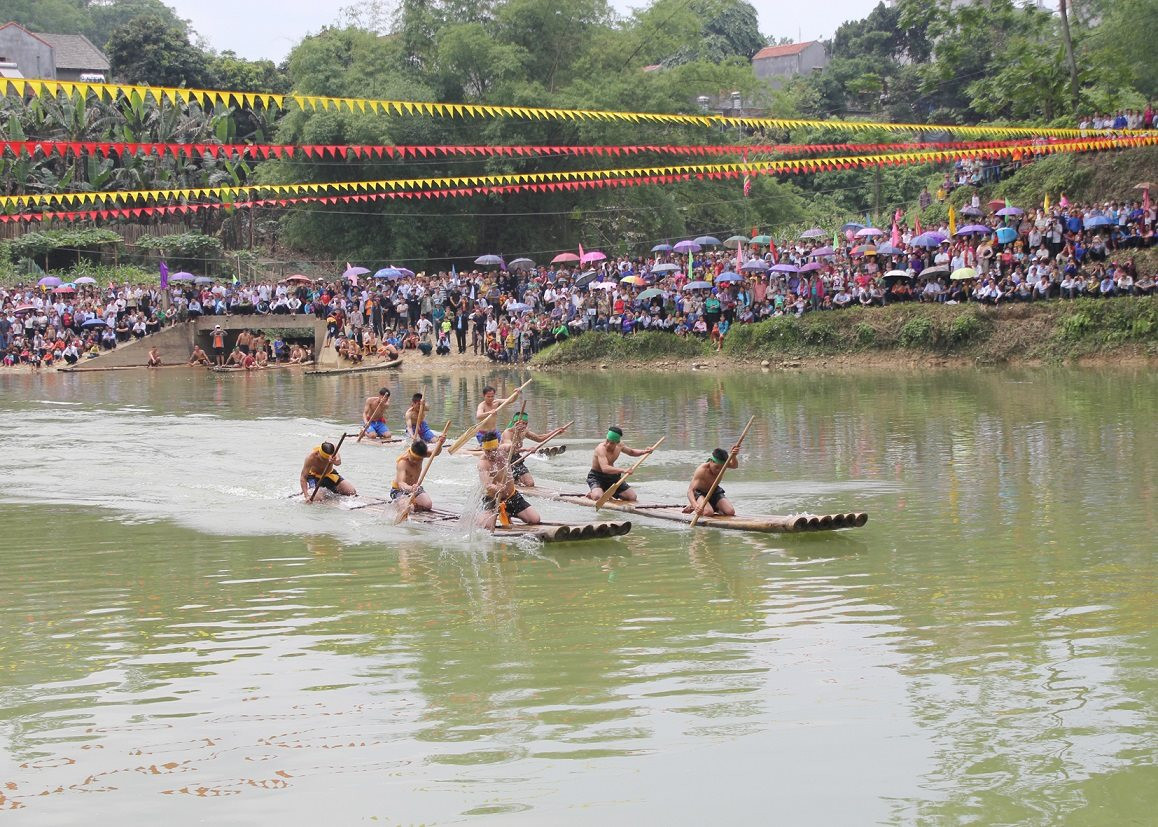
The most special part of the festival is the Phai Lua competition (also known as raft racing, diving, duck-finding diving, freestyle swimming) of young men from villages and hamlets in the commune. These are competitions that require athletes to be flexible, persistent, and have a lot of experience on the water. Before the festival took place, each village and hamlet had to build rafts for athletes to practice so they could understand and coordinate well during the competition.
On the opening day of the festival, each team of 3 athletes must cross 3 laps on a 1,000m long river. Notably, before reaching the finish line, each raft must flip 3 laps in front of the Snake God Temple, recreating the image of the Snake struggling to fight off the evil water dragons, and winding 3 laps on the river to say goodbye to his parents and villagers.
According to Mr. Hoang Anh Trinh - former Secretary of the Party Committee of Hong Phong commune, there was a period when the Phai Lua Festival was lost and not organized. However, realizing the humanistic meaning in the legendary story associated with the festival, which has the meaning of educating traditions and ideology for all generations, since 2003, Hong Phong commune has restored and successfully organized the festival.
With each festival, the number of people attending the festival is greater than before, showing the influence of the festival to visitors from all over. What makes Phai Lua so attractive? Perhaps, it is the peaceful space of the peaceful countryside of Hong Phong, where people can put aside the worries and fatigue of daily life, to immerse themselves in the smooth and profound antiphonal and love songs.
And especially the local culinary culture with hundreds of fragrant roasted pigs, roasted by hand, sold along the streets with cups of aromatic wine, street vendors full of local products... Along with the sincerity, simplicity, rusticity but full of enthusiasm and hospitality of the people here.
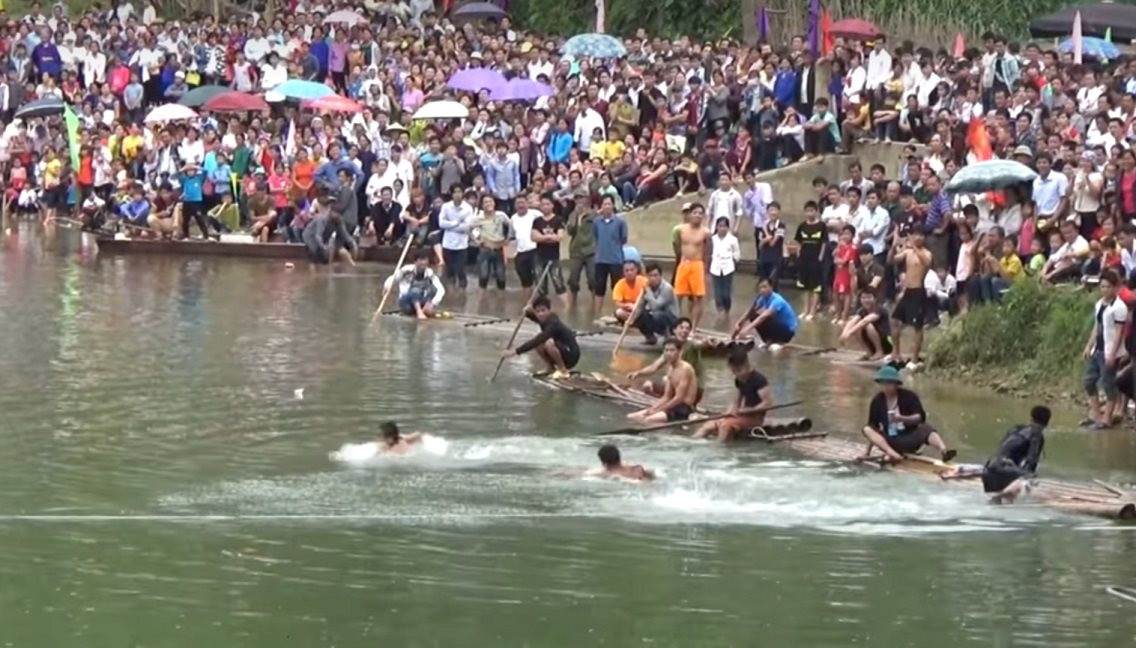
The afternoon sun has set, the festival is gradually coming to an end. The silhouettes of the indigo shirts gradually disappear on every street. Every moment of parting is filled with regret and reluctance, and then, together, we raise a glass of strong wine, and promise to meet again in the next festival season.
Mr. Leo Van Hiep - Vice Chairman of Binh Gia District People's Committee said that this year, the Festival will be held for 2 days, May 22-23 (April 4-5 of the lunar calendar), at Pac Lo Dang Communal House, Van Mich Village, Hong Phong Commune. With a series of activities, including: Displaying and introducing cultural beauty, local agricultural and forestry products; raft racing; swimming and diving competitions to catch ducks, folk games such as playing "tchet", "cu" (spinning top), "o an quan" (square balls)... Cultural exchange night between villages, agencies, units, schools; geological heritage discovery contest and Phai Lua festival for 19 teams from 19 communes and towns in the area...
Source


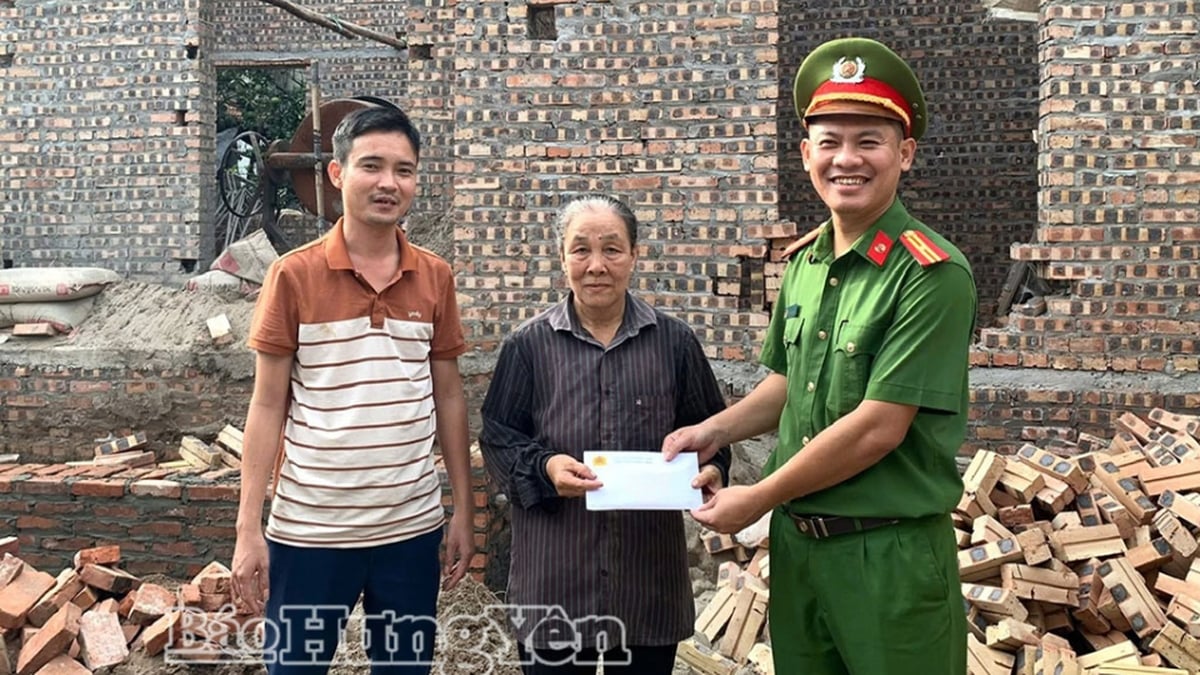


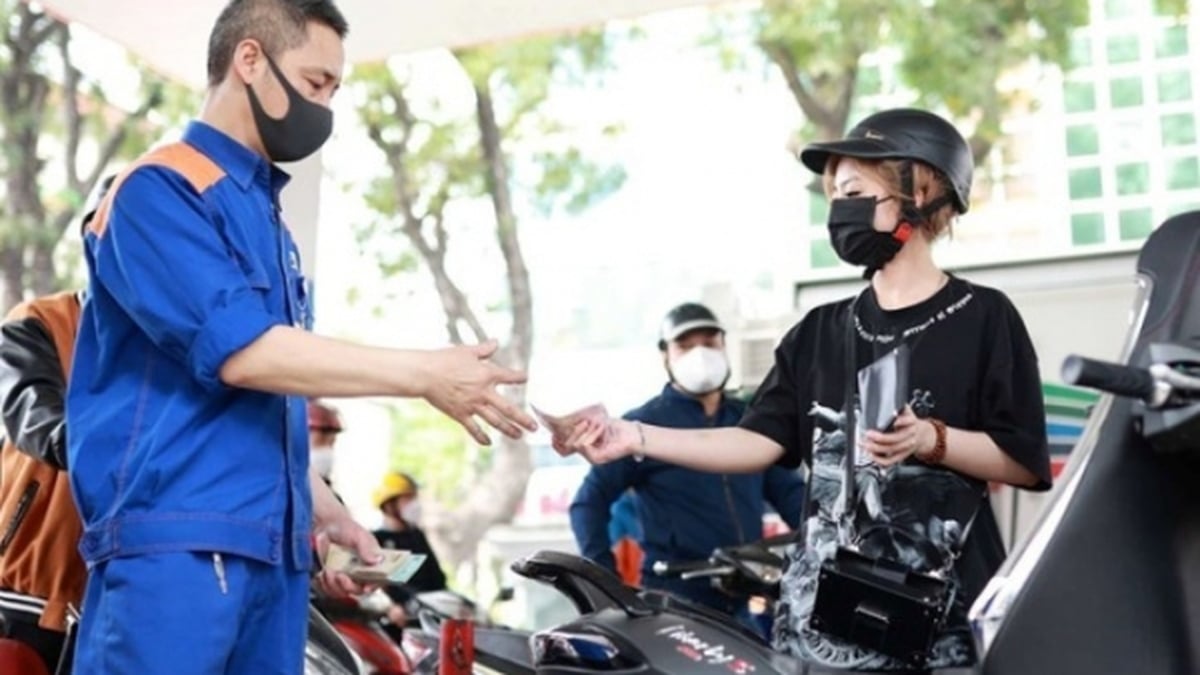
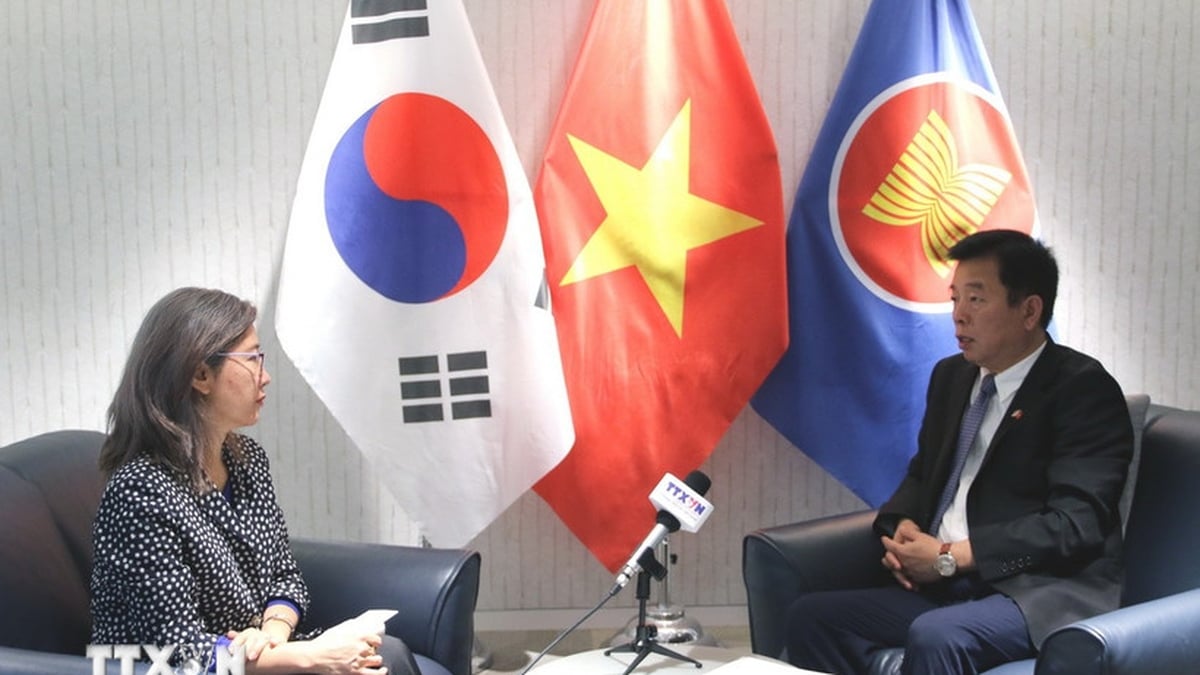
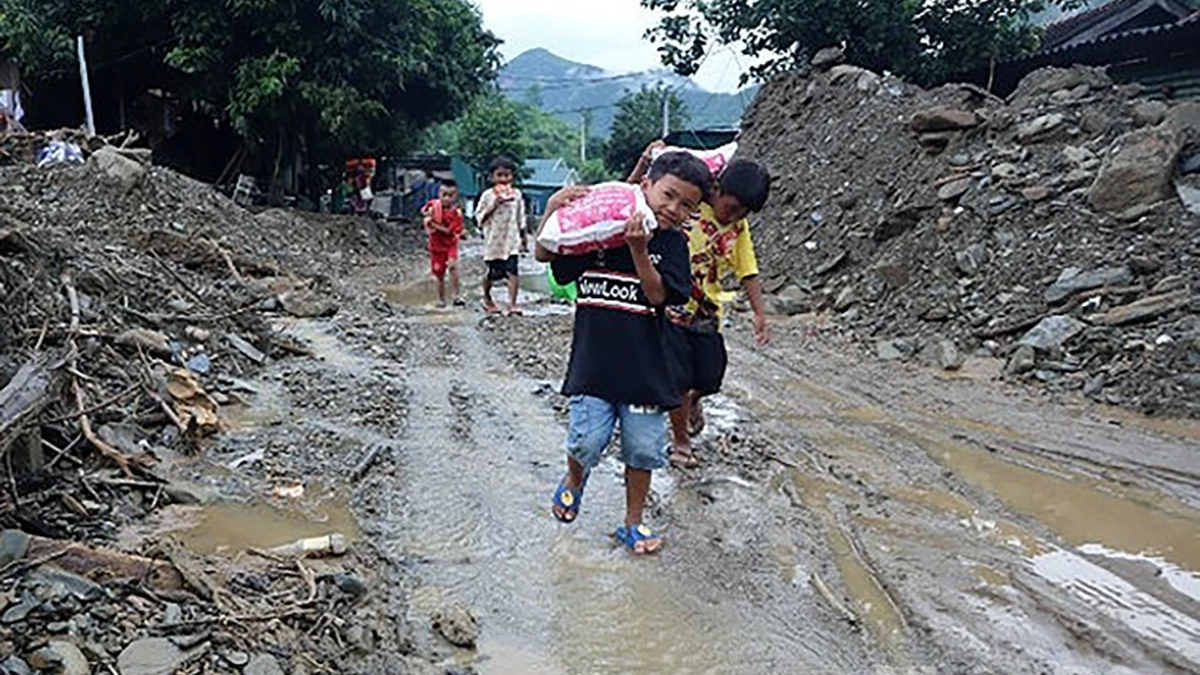
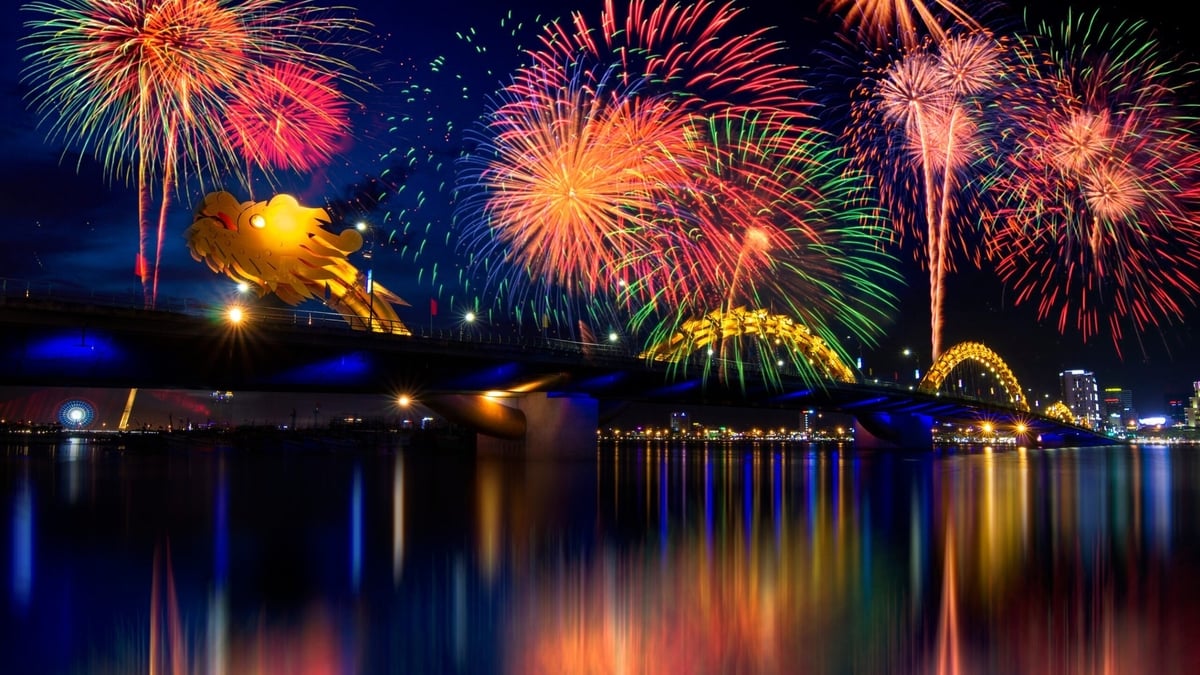
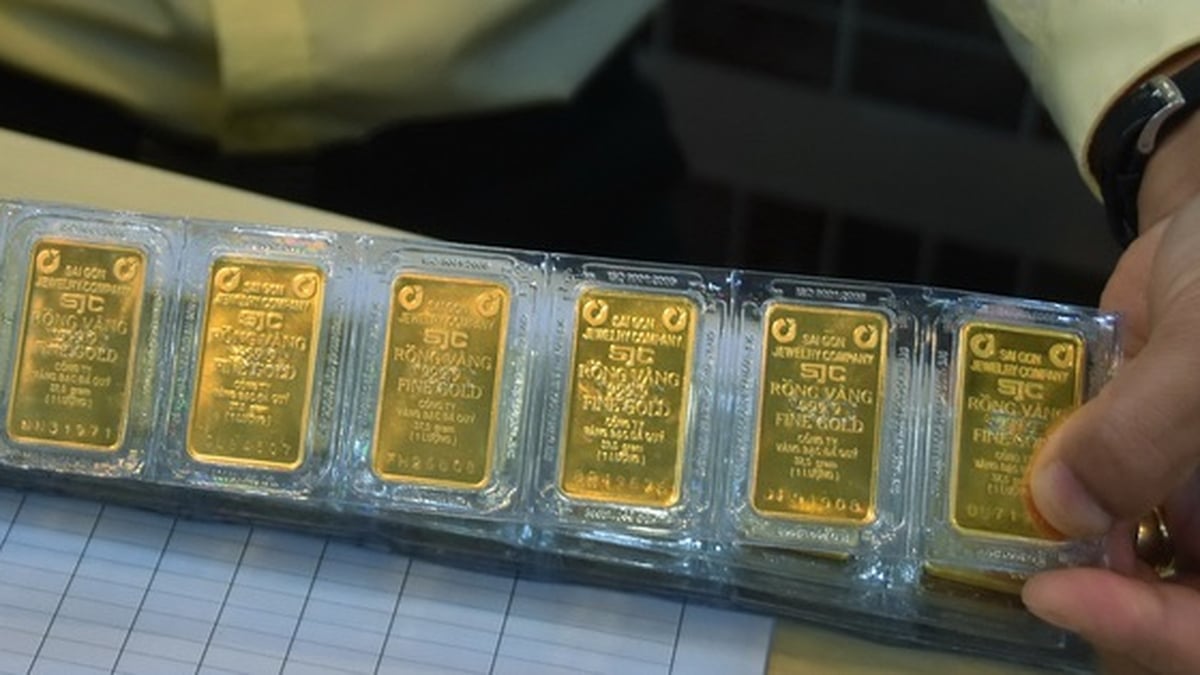
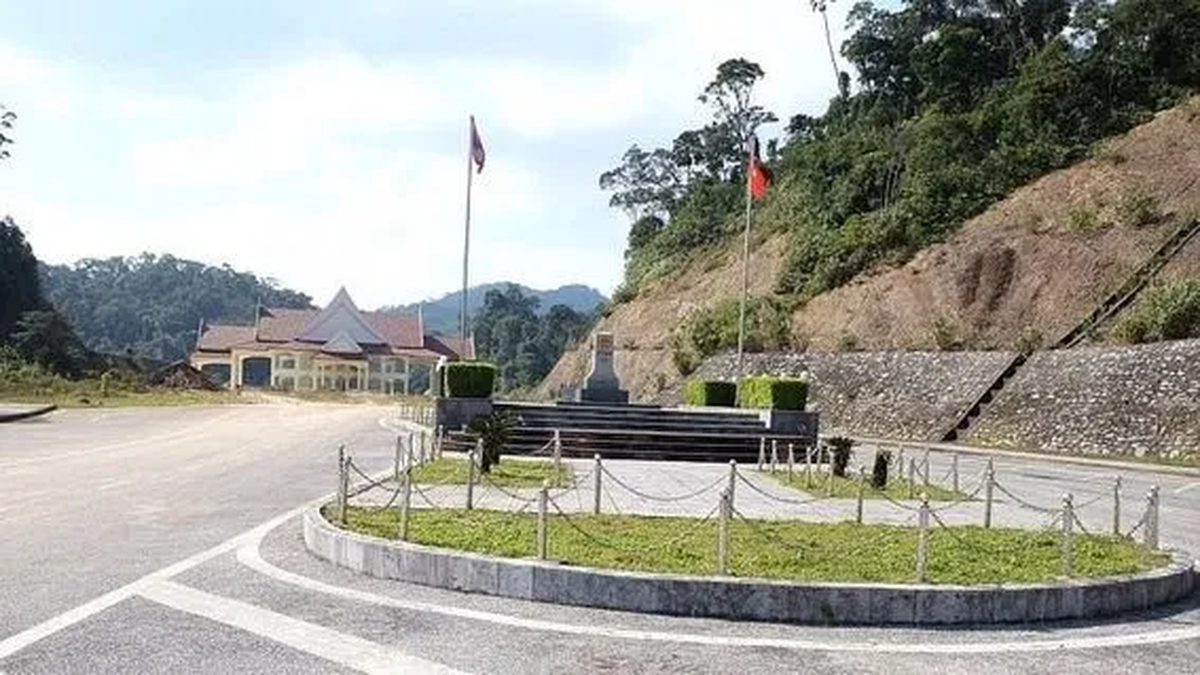
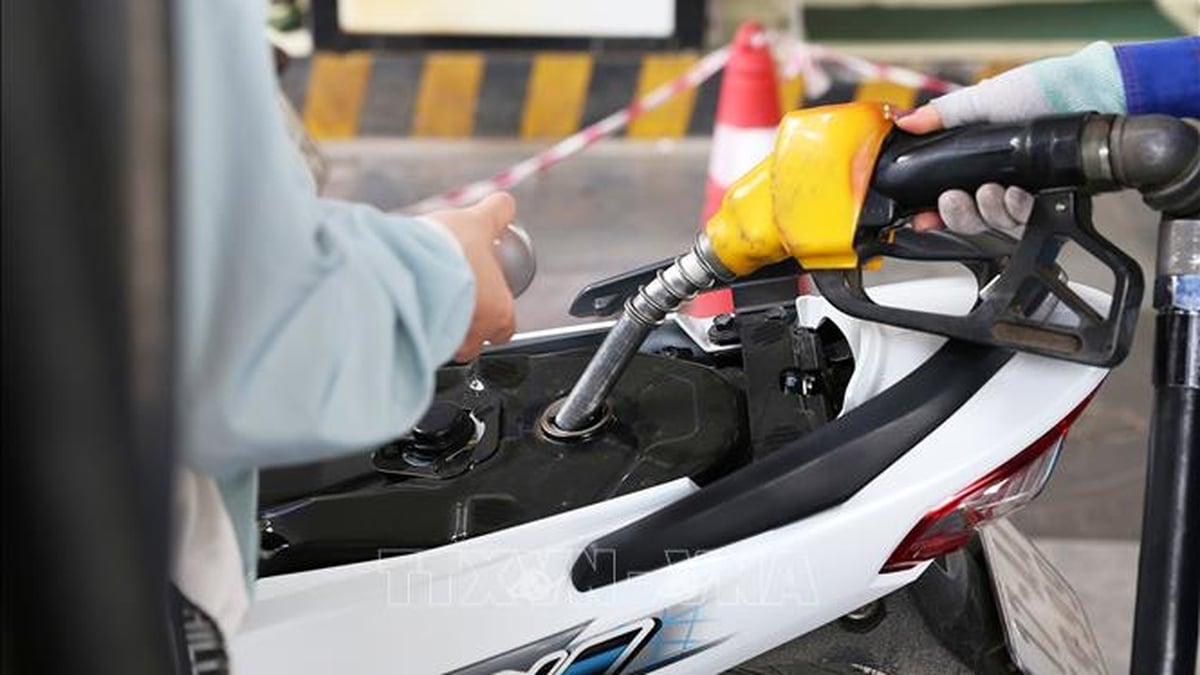











![[Photo] Nghe An: Provincial Road 543D seriously eroded due to floods](https://vphoto.vietnam.vn/thumb/1200x675/vietnam/resource/IMAGE/2025/8/5/5759d3837c26428799f6d929fa274493)


![[Photo] Discover the "wonder" under the sea of Gia Lai](https://vphoto.vietnam.vn/thumb/1200x675/vietnam/resource/IMAGE/2025/8/6/befd4a58bb1245419e86ebe353525f97)



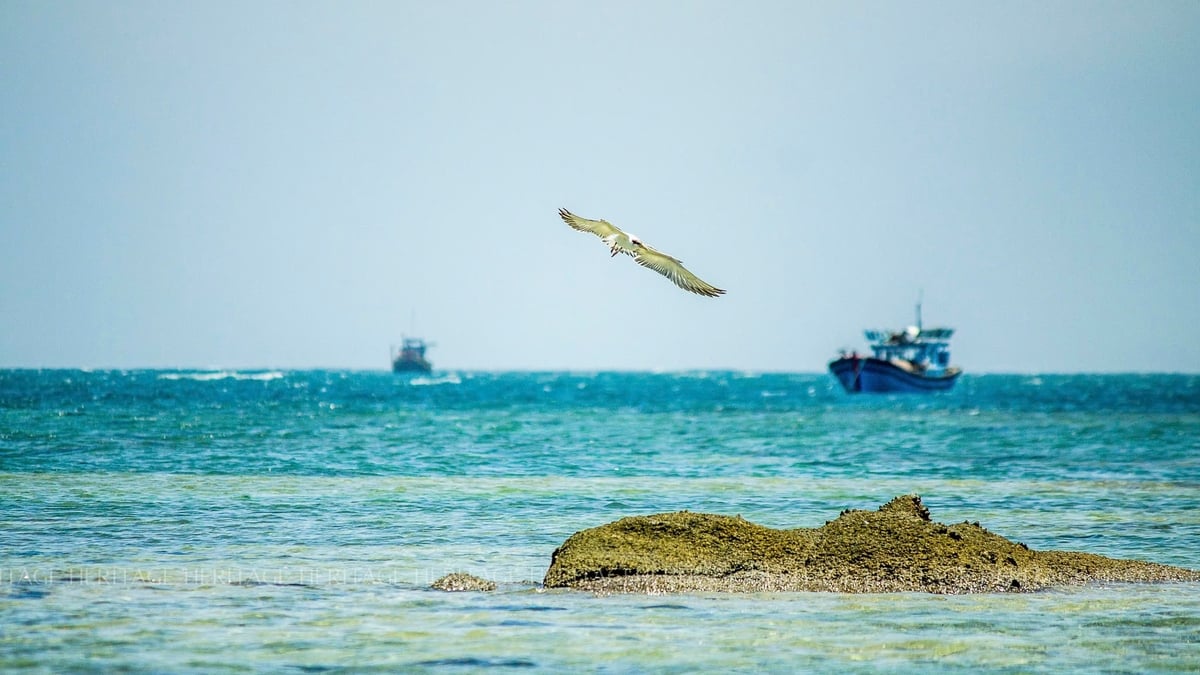























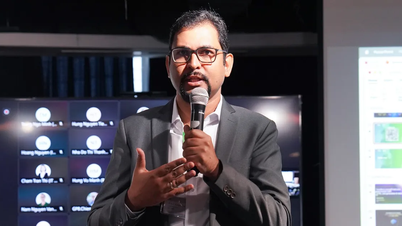




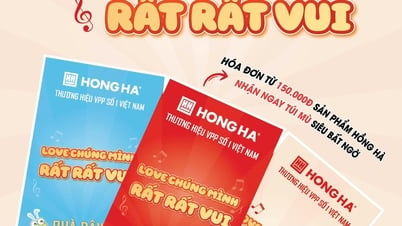
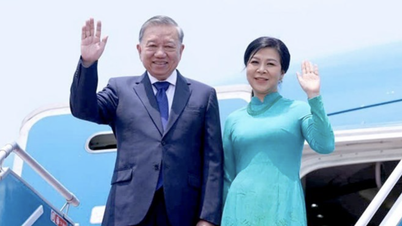



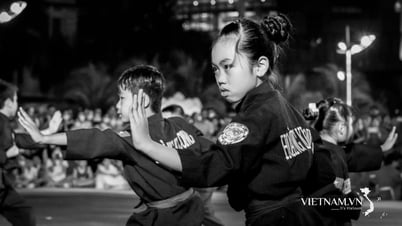

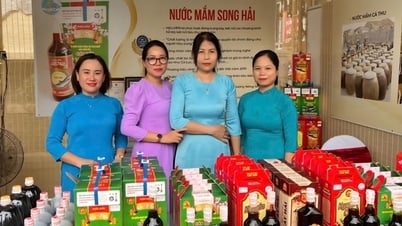

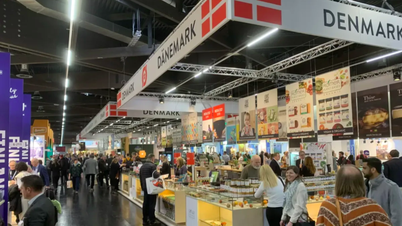

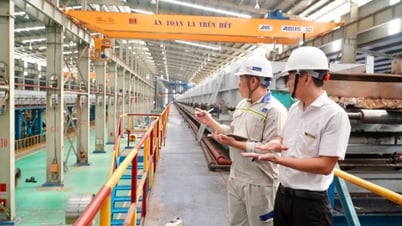
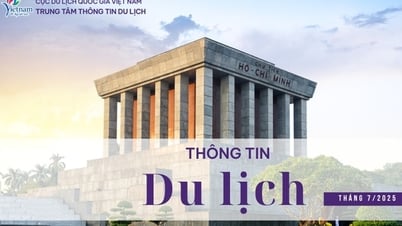
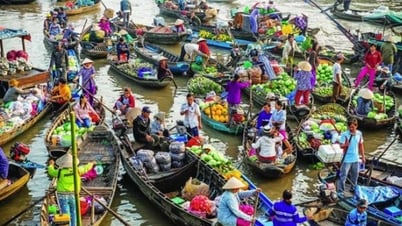
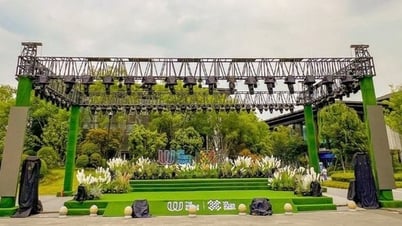

















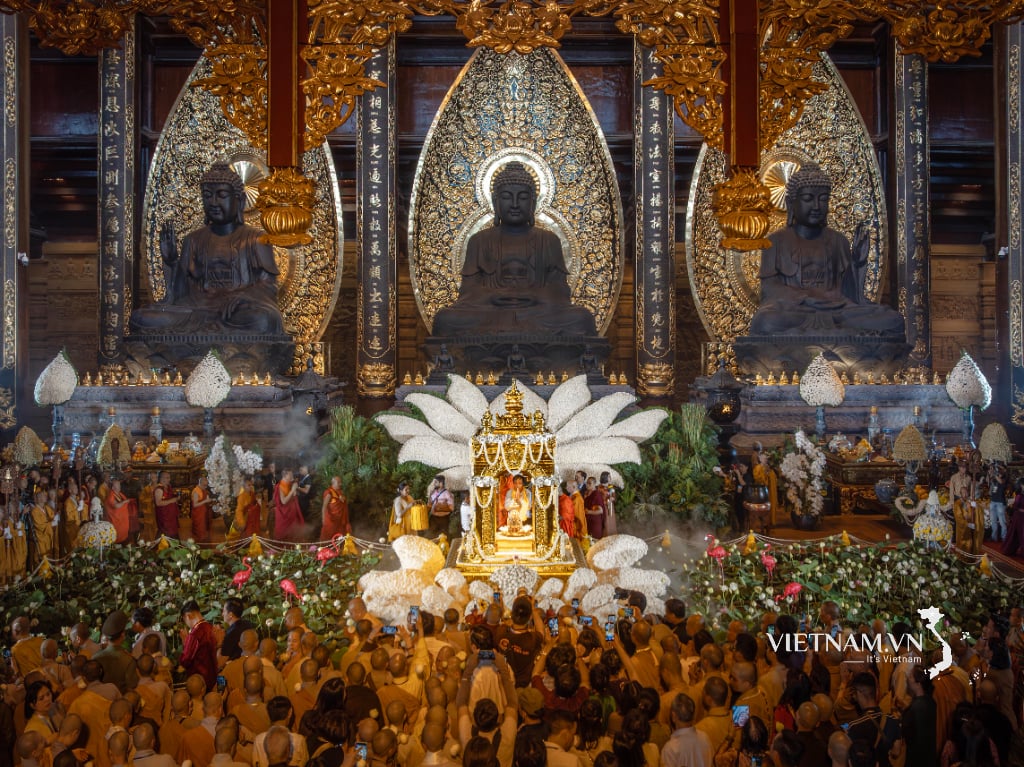
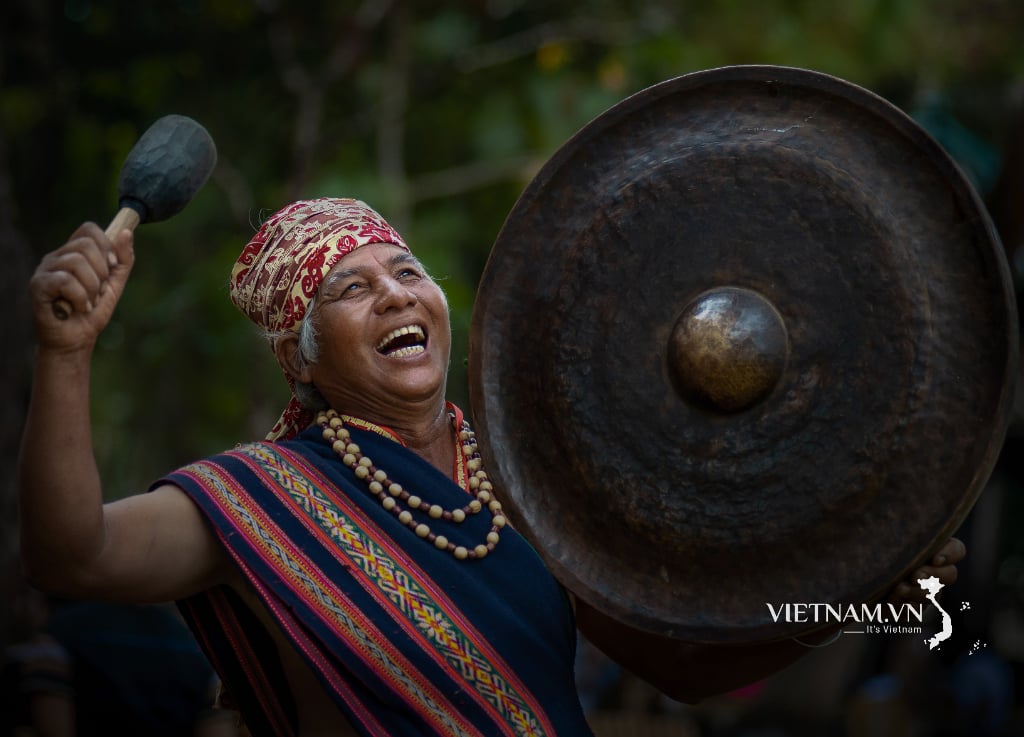
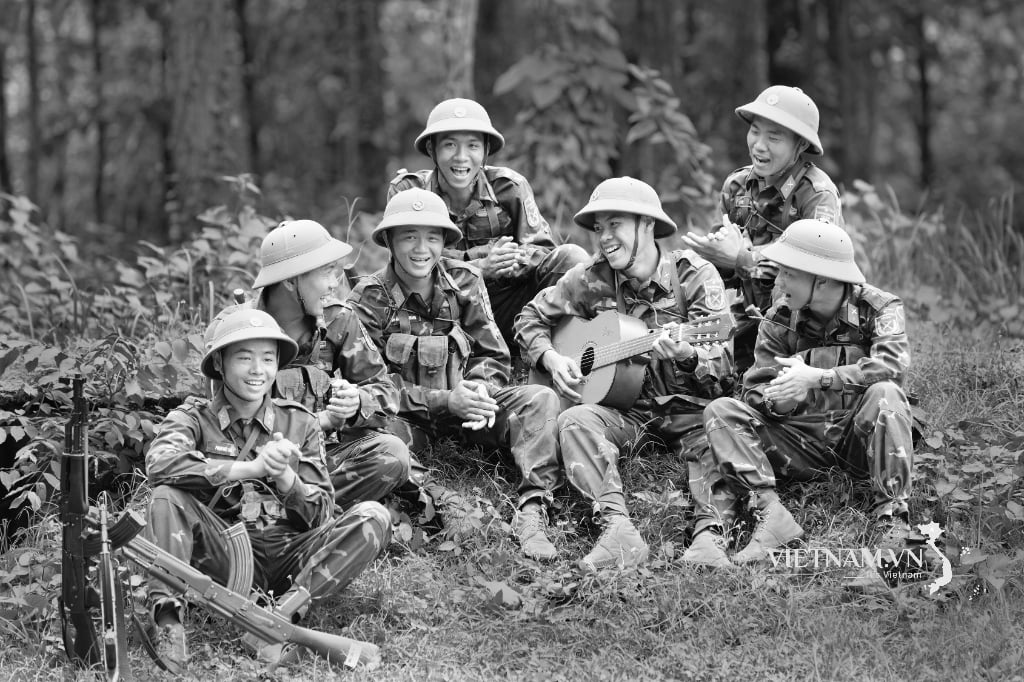
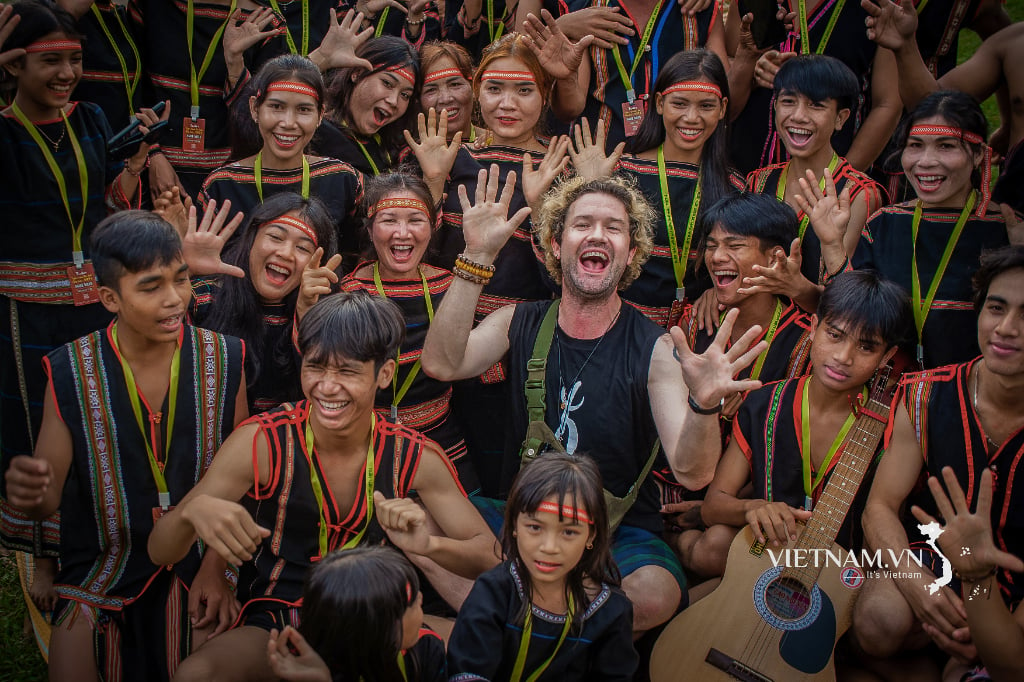
Comment (0)